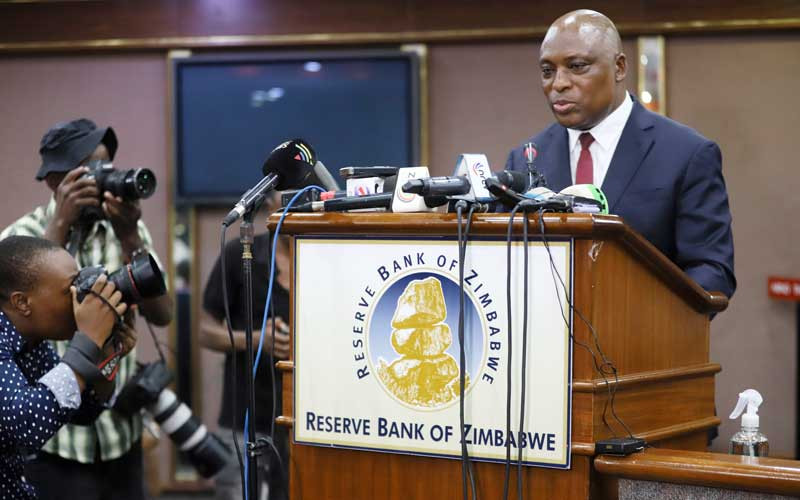
ZIMBABWE’S annual inflation — currently sitting at 55,3% —is seen falling to below 5% once the supplementary support measures in the new monetary policy framework have been implemented, Reserve Bank of Zimbabwe governor John Mushayavanhu has said.
In his maiden Monetary Policy Statement, Mushayavanhu rolled out several measures aimed at addressing the current state of price and exchange rate instability in the economy.
These included the introduction of the new currency called Zimbabwe Gold (ZiG); adoption of a market-determined exchange rate system; efficient and optimal money supply management; and anchoring local currency on reserves backed by gold and foreign currency balance.
“Once the currency and exchange rate have stabilised and the supplementary support measures in this new monetary policy framework have been implemented, inflation expectations should be firmly anchored towards the observed trend of domestic United States dollar inflation, which is expected to be below 1% month-over-month and between 2 and 5% annually,” Mushayavanhu said.
“Compared to the recent past, when the economy was growing in an inflationary environment, growth prospects will be more favourable with the anticipated exchange rate and price stability.”
The governor noted that in the last nine months, inflationary pressures have dissipated, as seen by the decline in the annual inflation rate from 30,9% in June to 17,8% in October 2023.
However, due to market speculation and adverse inflation expectations, there has been growing volatility in the exchange rate, with annual inflation registering a rebound, increasing from 26,5% in December 2023 to 34,8% in January 2024, and further increasing to 55,3% in March 2024.
Independent economists have estimated annual inflation at over 1 000%.
- Key drivers of inflation in Zim
- Currency crisis cripples women’s savings clubs
- So, is it a currency?
- Budget highlights
Keep Reading
The domestic economy has been characterised by high inflation, as well as exchange rate and currency instability.
Despite these setbacks, Mushayavanhu said the economy has remained resilient, with an anticipated growth trajectory, albeit lower than the initially anticipated growth of 3,5% in 2024 due to the impact of the El-Nino induced drought which has turned out to be more severe than initially envisaged.
“By addressing the impact of currency and exchange rate instability on potential growth, this monetary policy framework’s concomitant stability-restoration measures will provide the desired boost to the country’s economic growth prospects,” he noted.
Performance remains favourable on the external front with an estimated current account surplus of US$125,6 million in 2023,” Mushayavanhu said











